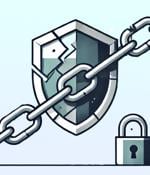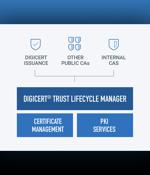Security News

The digital world is exploding. IoT devices are multiplying like rabbits, certificates are piling up faster than you can count, and compliance requirements are tightening by the day. Keeping up...

As the DigiCert drama continues, we now have a better idea of the size and scope of the problem - with the organization's infosec boss admitting the SSL/TLS certificate revocation sweep will affect tens of thousands of its customers, some of which have warned that the short notice may have real-world safety implications and disrupt critical services. A brief refresher on what happened: On July 29, the certificate authority said at least some customers had just 24 hours to replace their previously issued security certificates due to a five-year-old programming flaw in its systems.

DigiCert urges critical infrastructure operators to request a delay if they cannot reissue their certificates, as required by an ongoing certificate mass-revocation process announced on Tuesday. [...]

Certificate authority DigiCert has warned that it will be revoking a subset of SSL/TLS certificates within 24 hours due to an oversight with how it verified if a digital certificate is issued to the rightful owner of a domain. The company said it will be taking the step of revoking certificates that do not have proper Domain Control Validation.

DigiCert has given some unlucky customers 24 hours to replace their SSL/TLS security certificates it previously issued them - due to a five-year-old blunder in its backend software. The Register has asked exactly how many domains this represents, and we'll let you know if DigiCert can come up with a number.

DigiCert is warning that it will be mass-revoking SSL/TLS certificates due to a bug in how the company verified if a customer owned or operated a domain and requires impacted customers to reissue certificates within 24 hours. DigiCert is one of the prominent certificate authorities that provides SSL/TLS certificates, including Domain Validated, Organization Validated, and Extended Validation certificates.

New solution brings together full stack of CA-agnostic certificate lifecycle management, PKI services and tightly integrated public trust issuance. The 2022 State of Digital Trust Survey found that almost half of consumers have stopped doing business with a company after losing confidence in its digital trust competency.

Paired with the required DMARC enforcement, VMCs are a critical step in a series of security measures that help strengthen email security, build trust in the inbox and help users associate the brand logo with the company they expect to communicate with. "With BIMI and VMC from DigiCert for DMARC-verified domains, organizations can now demonstrate to their customers a higher level of email security. DigiCert VMCs not only help reduce instances of spam and spoofing customers receive, because of the DMARC requirement, but they also enable organizations to go beyond displaying default email addresses to increase engagement rates and display their brands more prominently."

DigiCert announced the DigiCert Smart Seal, a new dynamic site seal that gives website visitors confidence that their information is secure on the web. The DigiCert Smart Seal is the first seal to visually display the site owner's brand via a verified brand logo.

Manufacturers can now embed certificates on chipsets prior to and during manufacturing, or directly to an edge device, for complete end-to-end device security. IoT Device Manager is built on DigiCert ONE, which enables rapid, automated PKI deployment as a customer-managed, on-premises or cloud solution, or managed by DigiCert for any environment.